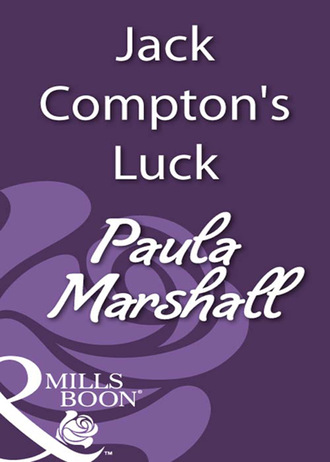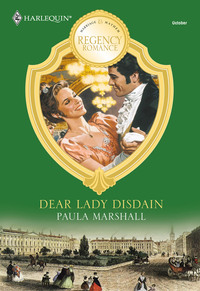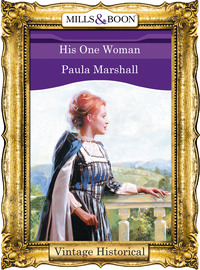
Полная версия
Jack Compton's Luck

“Admiring the Chancellor heiress, are we?”
“Chancellor heiress?” Jack turned to look at his companion just as the dance ended and the young woman moved off the floor.
“She’s a half sister of the present Chancellor head of the family, who is a financial wizard in the city. The heiress was sent to the States shortly after the war started, when she was quite a young girl. Came back earlier this year. Everyone and his brother’s after her.”
He looked sideways at Jack. “How about it? Why not have a go yourself? God knows you could do with the money, no longer land-rich, and dirt-poor into the bargain. But however carefree she looks on the dance floor, she’s as hard as nails when it comes to suitors.”
“And as hard as nails on the dance floor, too, if the performance I’ve just witnessed is any guide,” said Jack, determined not to reveal how much the mere sight of the Chancellor heiress had roused him.
Jack Compton’s Luck
Harlequin®Historical
MILLS & BOON
Before you start reading, why not sign up?
Thank you for downloading this Mills & Boon book. If you want to hear about exclusive discounts, special offers and competitions, sign up to our email newsletter today!
SIGN ME UP!
Or simply visit
signup.millsandboon.co.uk
Mills & Boon emails are completely free to receive and you can unsubscribe at any time via the link in any email we send you.
Author Note
After I had written two novels telling of the Chancellor twins Ritchie and Russell, and the part played in the first, Major Chancellor’s Mission, by the charmed object called the Luck of the Comptons, it occurred to me that here was another interesting story waiting to be written.
The Luck had passed out of the hands of the Comptons and into those of the Chancellors, with the promise that if ever the Comptons were to be in serious trouble again the Luck would find a way to return to them, and so offer them salvation.
Just over a hundred years later, in the 1920s, the Comptons find themselves once more in financial difficulties. Jack Compton, trying to save his family home from ruin, meets Miss Lacey Chancellor, a descendant of Ritchie, and their love story takes place in events that echo those of her ancestor.
I hope you enjoy reading about them as much as I enjoyed creating their adventures.
Paula Marshall
JACK COMPTON’S LUCK

TORONTO • NEW YORK • LONDON
AMSTERDAM • PARIS • SYDNEY • HAMBURG
STOCKHOLM • ATHENS • TOKYO • MILAN • MADRID
PRAGUE • WARSAW • BUDAPEST • AUCKLAND
PAULA MARSHALL,
married with three children, has had a varied life. She began her career in a large library and ended it as a senior academic in charge of history in a polytechnic. She has traveled widely, has been a swimming coach and has appeared on television in University Challenge and Mastermind. She has always wanted to write, and likes her novels to be full of adventure and humor.
Available from Harlequin®Historical and PAULA MARSHALL
Rinaldi’s Revenge #133
*An Unconventional Heiress #141
*Hester Waring’s Marriage #147
*A Strange Likeness #153
*An Innocent Masquerade #158
The Astrologer’s Daughter #172
*His One Woman #181
*The Dollar Prince’s Wife #185
*Prince of Secrets #189
**Maid of Honor #198
**The Black Sheep’s Bride #212
The Daring Duchess #215
Major Chancellor’s Mission #224
Lord Hadleigh’s Rebellion #228
The Devil and Drusilla #241
Jack Compton’s Luck #260
DON’T MISS THESE OTHER
NOVELS AVAILABLE NOW:
#943 THE DIAMONDS OF WELBOURNE MANOR—Diane Gaston, Deb Marlow, Amanda McCabe
Welcome to Welbourne Manor! In this lush family home a Regency house party is in full swing. Join three beautiful sisters, Justine, Annalise and Charlotte, as they each discover something more precious than diamonds—husbands!
#944 HIS FORBIDDEN LIAISON—Joanna Maitland
Notorious Jack Aikenhead has never wanted for female company…until he meets feisty Marguerite Grolier, and realizes she’s the only woman he needs. Although they have been thrown together by circumstance, the reckless rake transforms into an honorable knave, for love!
Third in The Aikenhead Honors trilogy—three gentlemen spies: bound by duty, undone by women!
#945 THE CATTLEMAN’S UNSUITABLE WIFE—Pam Crooks
Ruthless Montana rancher Trey Wells has never met a woman who ignites his passion so much as exotic beauty Zurina Vasco. Despite all that separates them, can Trey give Zurina the love, respectability and true home she deserves?
#946 THE BORDER LORD—Sophia James
Laird Lachlan Kerr knows the safety of his home depends on his betrothal to Grace Stanton, but their passionate embraces are an unexpected pleasure! Lach is used to betrayal at every turn, but Grace’s faith in him is powerfully seductive…
#259 MAJOR WESTHAVEN’S UNWILLING WARD—Emily Bascom
Spirited, independent Liliana Pevensey is horrified to learn her late brother has placed her under the guardianship of brooding Major Daniel Westhaven! Battle-scarred Daniel clearly disapproves of her—so why does Lily find herself longing for his touch?
Contents
Chapter One
Chapter Two
Chapter Three
Chapter Four
Chapter Five
Chapter Six
Chapter Seven
Chapter Eight
Chapter Nine
Chapter Ten
Chapter Eleven
Chapter Twelve
Epilogue
Chapter One
Jack Compton was leaning against a wall at the Leominsters’ thrash, watching the dancers in the great ballroom. It was the first time that he had taken part in the London season since the Great War had ended six years ago in 1918 and there was something frenetic about everyone’s behaviour which didn’t resemble in any way the life he had known before the war.
His cousin, Rupert Compton, had brought him along. He was something in the City, which was another new thing since, until quite recently, the Comptons had always been tied to the land and had rarely had much to do with town.
‘I haven’t been invited,’ he had protested when Rupert had said, ‘Why don’t you come along with me to old Mother Leominster’s do?’
‘Oh, fudge to that,’ Rupert had said carelessly. ‘Who cares about invitations these days? You’re my cousin and that’s good enough.’
Once at the Leominsters’ Rupert had disappeared, a giggling girl on his arm, shortly after they had both done the pretty in the reception line at the top of the stairs—at least some things hadn’t changed, Jack thought.
Lady Leominster had stared at him when he had arrived before her and had said in a sweet voice, ‘If you’re Rupert’s cousin I suppose that you must be related to Sir William Compton. Sad about him, wasn’t it? Is there any hope that he might recover?’
Jack had agreed that he was related to Sir William, being his younger brother, and no, there was little chance that Sir William would ever be other than a frail and helpless cripple as the result of his war wounds.
‘Oh, how rotten,’ she had replied, but not passing on to her next guest until she had said, ‘Please remember me to him, we were very close when we were young together, before the War, that was.’ It was plain that this Lady Leominster was quite unlike her predecessors, most of whom had been fiery Amazons, famous for their managing and meddling ways.
Jack had moved on after that and, knowing nobody, had wandered around Leominster House which was still much as it had been before the war had changed almost everything else. Rupert had not yet reappeared, so he decided to return to the ballroom and watch the dancing a little before going back to his lodgings near Regent’s Park—although the temptation to leave immediately had been great. He resisted it, and was afterwards to wonder how different his life might have been if he had left before the dancing began.
There was a jazz band performing on a small stand in a corner of the room. It was said to be the real thing since the musicians had all come from New Orleans to take London by storm. They were playing a tune which he did not know, but was later to learn that it was called, quite simply, ‘Charleston’. The dance being performed to the music was of the utmost live-liness and was like nothing that Jack had ever seen before—except on the stage.
All the decorum of normal ballroom dancing had disappeared. The dancers, who seemed to be in a state of high abandon, were throwing themselves about, waving their arms and side-kicking from the knee. When they were not doing that, they were bowing their legs and knocking their knees together with much crossing of their hands over them.
It was not so much that Jack was shocked—nothing much shocked him these days—but that the scene before him was so different from anything which he had previously seen at a great house in London society that he stared at it in amazement.
One couple particularly caught his eye. The man was young, elegant and athletic, but his female partner was something else altogether. The only word that described her, Jack decided, was stunning. She was dancing with the utmost flair, as though not only was she on the stage, but she was also very much the star of the show. Altogether she was a sight for sore eyes, as Jack’s nurse had been fond of saying.
Her low-waisted frock, emerald green in colour, with stockings and shoes to match, was short and diaphanous. A pair of exotic orchids rode on her left shoulder. Her dark hair was cut fashionably short, except for a long fringe which was held back by a tortoiseshell buckle ornamented with tiny emeralds and diamonds. Her eyes shot green fire to match the emeralds. Her vivacity, as she laughed up into the face of her partner, made every other woman in the dance look stolid.
What was worse, her effect on Jack was extreme. Since he had arrived back in England after serving in Palestine once the war in Europe was over, he had lived a quiet and abstemious life. Before the war he had been part of a lively set of officers and gentlemen and had been nicknamed ‘Fighting Jack’ for his many daring and comic exploits. Four years of war and five years of trying to save the Compton family estates after his service in Palestine had changed all that.
He was so taken up with watching her gyrations, not sure whether he appreciated her expertise or deplored it, that he failed to hear Rupert, now without his girl, sneak up on him.
‘Admiring the Chancellor heiress, are we?’ he asked, grinning a little at the expression on Jack’s face. He had always thought Jack a bit of a stick, full of duty and honour and all that, since he had retired from the Army, but no stick had ever looked at a woman as Jack was doing! Fighting Jack was back with a vengeance!
Jack, startled, turned to look at Rupert just as the dance ended and the young woman and her partner moved off the floor together and towards the supper room.
‘Chancellor heiress?’ he parroted witlessly. ‘I thought I knew all of Bretford’s brood.’
He was referring to the Earl of Bretford, whose family name was Chancellor. ‘But aren’t they all as poor as church mice these days?’
‘Not this one. She’s not one of Bretford’s get, old chap. She’s some half-Yankee fourth or fifth cousin, an heiress, no less, through her mother’s father. She’s a half-sister of the present Chancellor head of the family who is a financial wizard in the City and as rich as Croesus himself—they’re the hard-headed branch. The heiress was sent to the States shortly after the War started when she was quite a young girl. Came back earlier this year. Everyone and his brother’s after her, but she’s not yet shown any interest in marrying any of them.’
He looked sideways at Jack. ‘How about it? Why not have a go yourself? God knows you could do with the money, no longer land rich, and dirt poor into the bargain.’
‘Why not have a go yourself?’ riposted Jack. ‘You are in no better case than we are.’
‘I suppose by “we” you mean poor Will since he’s still in the land of the living. No, I’ve had a go at her but, however carefree she looks on the dance floor, she’s as hard as nails when it comes to suitors. She made it very plain that I was an also-ran.’
‘And as hard as nails on the dance floor, too, if the performance I’ve just witnessed is any guide,’ said Jack, determined not to reveal how much the mere sight of the Chancellor heiress had roused him.
‘Beggars,’ said Rupert, as though he were coming out with something new and profound, ‘can’t be choosers, old fellow. Let’s be off to the supper room so that you can meet the lady.’
‘I don’t even know her name yet,’ returned Jack, ‘I can scarcely address her as the Chancellor heiress.’
‘Oh, it’s one of those odd Yankee ones,’ said Rupert cheerfully. ‘Lacey, no less. How do you like that?’
‘Not much,’ said Jack, ‘but, as you say, beggars can’t be choosers. On, Stanley, on. Not that I’m willing to sell myself for money, but anyone who carries on like that on the dance floor is well worth knowing.’
‘Ah, yes,’ said Rupert knowingly. ‘The Charleston, the dance which has become all the range while you’ve been in exile. She’s famous for that. She’s a flapper who rarely flaps, except when she’s on the ballroom floor.’
‘The Charleston, eh?’ mused Jack. ‘So that’s what it’s called. Also from the States, I suppose.’
Rupert was cheerful, ‘You suppose correctly. Come on, let’s be off to the supper room before the grub disappears and find the American Beauty—that’s what the gossip columnists are calling her.’
‘If you must,’ said Jack. ‘I was thinking of going home.’
‘Home, where the devil’s that?’ said Rupert. ‘Up a pair of stairs somewhere cheap, I shouldn’t wonder. I’m surprised that you trouble to come to town at all if this is how you carry on when you do.’
‘Business,’ said Jack, ‘business brings me.’
‘Well, in that case,’ Rupert riposted, ‘we must go to the supper room at once. Your business tonight is to repair the Compton fortunes by snaring the Yankee beauty—a much better way of doing it than working yourself to the bone at Compton Place.’
He slid an arm through Jack’s. ‘Come on, old fellow, stop moping and enjoy yourself for a change. The war was over last July,’ he sang, ‘it said so in “John Bull”.’ He winked at Jack as he finished, just like the comedian who had introduced the song to the London stage.
Jack gave way and let Rupert lead him to the supper room. Why not? He could meet the Beauty and see if her conversation matched the force and vigour of her dancing. He very much doubted it.
They were both unaware that they had been overheard by a lady of mature years who still possessed the remnants of great beauty. She had been seated in an alcove away from the heat of the ballroom and, hearing that it was Lacey Chancellor whom Jack and Rupert had been discussing, she had grown more and more disgusted with the pair of them.
Since she was Lacey’s Aunt Sue, as well as being her companion and protector—not that Lacey needed much protection—she considered it to be her duty to warn her to keep well away from the Compton cousins. Rupert she had met before and had considered him a charming lightweight. The other man had sounded little better. A pair of predatory so-called gentlemen who had nothing better to do than try to marry her innocent niece for her money.
She would go to the supper room herself and spike their guns. Her brother, Jacob Hoyt, the General, often used the phrase and she had always wondered exactly what it meant. No matter, it sounded nicely dramatic and that was enough. Oh, and if she got the opportunity, it might be as well to advise Lacey not to dance the Charleston quite so vigorously—it seemed to be giving young men the wrong idea about her.
Aunt Sue sighed. And much notice Lacey would take of that. The women of her branch of the Chancellor family were always as lively and merry as grigs—and, by the by, what were grigs? And why were they merry?
No matter, she had her duty to do and, like Jack Compton, although from what she had overheard, she might not think it of him, Aunt Sue always did her duty.
Lacey Chancellor in the supper room was not thinking about duty at all. She had come to England to visit her distant relatives in order to get away from doing her duty for a time. It would be waiting for her, she knew, the moment that New York’s towers hove into view at the end of the sea voyage home.
In the meantime she was enjoying herself with her distant cousin, Darcey Chancellor, who was safely promised to a pretty girl back in one of the Shires, and who was having a last, reasonably innocent fling in town before he went back to marry her. ‘No hope for you, old girl,’ he had carolled at her when they had first met. ‘I can squire you round town, tell you who to avoid and who to be pals with. If you meet anyone you prefer, just say the word and I’ll find another obliging female who doesn’t want me to be serious.’
Lacey had laughed at him a little, but she had soon found out that, for all his surface frivolity, he was a man of his word.
‘Dodge him,’ he said, when he saw her talking to one seedy Earl. ‘Listen to your Uncle Darcey. He’s no money, no sense and no morals. Now, that one…’ and he indicated a younger man with a charming, if somewhat characterless, face ‘…is painfully honest and safe. A much better bet. He owns a worthwhile stable of racehorses, too. I gather that your branch of the Chancellor family are all great equestrians.’
‘True,’ said Lacey. ‘Although I’m a steady rider, not a great one.’
Now, in the supper room, she was looking around her. She knew most of those present and, despite her youth, was able to judge them at first sight nearly as well as Darcey, who had known them all his life.
There was, though, one man present talking to the ineffable Rupert Compton whom she had never seen before. He was tall, but not too tall, and held himself after a fashion which Lacey recognised, since all her Chancellor relatives possessed the same upright stance. It was that of a soldier, or a man born into a family of soldiers. He was well built, although not in any way heavy. But it was none of these attributes which had her watching him: it was his face.
He was a little past his first youth, she thought, somewhere in his early thirties, but his face was more lived-in than that. When younger he had probably been conventionally handsome, but time had written experience on what had once been youthful charm; it was the kind of experience which had Lacey giving a little shiver at the sight of it. Of course, he had probably been a soldier in the last war, and it was that which had scarred the smooth beauty of a man who had enjoyed nothing but an easy life before it.
He had stopped talking to Rupert Compton, and was now looking across the room at her. Their eyes met. His were quite unlike hers, being as grey as a stormy sea with the faintest hint of a drowned blue in them. They matched the dark blond of his hair, so dark that it was beginning to turn into a colour which was more of a bronze than a brown…
Lacey became aware that Darcey was talking to her. She wrenched her eyes away from the stranger and tried to work out what Darcey had been saying. He was no fool, though, and he was well aware of why Lacey had become a little distrait. He was not surprised when he saw the man at whom she had been staring walking towards them with Rupert Compton at his side.
Now, here was a jolly thing! Well! Well! Well! Fighting Jack Compton and Lacey Chancellor were obviously intrigued by one another. Did Jack still deserve his nickname? Nothing had been seen of him since the War had ended. Only yesterday someone had remarked that he had left the Army several years ago and had gone to manage the estate of his brother, Sir William, whom the War had rendered a hopeless and helpless cripple.
If he were still Fighting Jack then he would probably relish knowing the lively Lacey. It was almost his duty to forestall Rupert Compton, introduce them himself and watch the fur and feathers fly. She deserved an opponent worthy of her steel. Most of the men in society at the moment were either war-weary veterans or soft young fools and it was to be hoped that Jack came somewhere in the middle.
‘Well met, Rupert,’ he said. ‘And Jack, too, although I don’t suppose Jack remembers me. I was only a nipper when we last met, before the War.’
‘Darcey Chancellor, isn’t it?’ said Jack, amused by the way in which young Darcey had sidelined Rupert who liked to think of himself as one of the arbiters of what was left of society.
‘Indeed. Now, I don’t suppose you know my partner for the evening. She’s over here from the States. One of the Chancellors, no less. Lacey Chancellor, meet Fighting Jack Compton, late of the Guards, and now, I believe, running his crippled brother’s estate for him.’
‘Delighted!’ exclaimed Lacey and Jack together. Lacey, as frank as a boy, put out her hand to Jack. Jack did not shake it, as she had half-expected, but instead took it and kissed it.
As he touched her the most extraordinary thing happened—something which he had not experienced since he was a green boy and merely to see a pretty young woman had excited him. Desire roared through him, red hot. He was Fighting Jack Compton again, the man he used to be before time and chance had changed him into the man whom he knew Rupert secretly mocked. Something in the eyes of the woman who was snatching her hand away from his told him that she, too, had felt the electric current which had flashed between them.
Lacey was, if anything, more shocked than Jack. She had been squired by a number of desirable young men both back in the States, where she had almost married one, and here in England, too. Yet she had never before experienced the sensation that had passed through her when first Jack touched her hand and then kissed the back of it. And to have this happen with a man whom she had only just met, to whom she had not even spoken, was the biggest surprise of all!
If she were honest, though, the moment that her eyes had met Jack’s across the crowded room she had felt a shiver of something powerful. That, too, was a new thing.
‘Fighting Jack,’ she almost stammered, so shocked was she. ‘How come you were called that? Your prowess in the ring, perhaps?’
Jack shook his head. ‘Not really, although I boxed a little at Oxford and when I was in the Army before the war, but I was nothing out of the ordinary. I’m afraid I was something of a reckless daredevil, up to any silly jape I could think of.’
Rupert, unused to being ignored, said, ‘Come on, Jack. Silly japes they might have been, but dangerous, too. Why, Lacey, the fellows used to bet whether or not he could bring off the most daring challenges he could find. He was a devil at night-climbing tall buildings at the Varsity, weren’t you, Jack? Why, I remember when—’
Jack closed his eyes. ‘That’s enough, Rupert. I prefer to forget all that. You will give Miss Chancellor a very dated picture of me. I’m a reformed character these days. Quiet and dull, confined to the provinces.’
Lacey, however, could believe that he had deserved his nickname. True, he had spoken to her calmly enough, but there was something about him that told her of a leashed strength, now well under control. Furthermore, she didn’t believe that anyone who was merely quiet and dull could have had such an immediate and profound effect on her.









